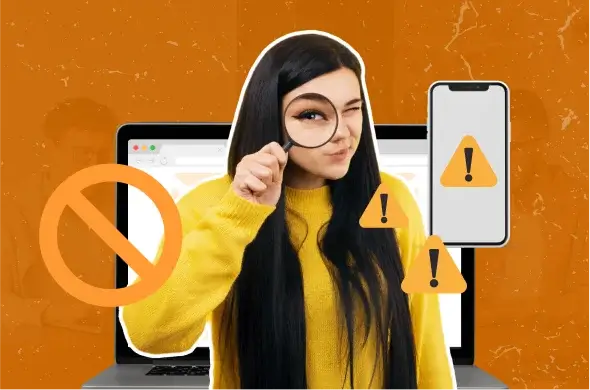Uncovering the Potential of User-Generated Content in Digital Marketing

UPDATED November 8, 2024
Written By John Calongcagon
User-generated content (UGC) has become a valuable asset for brands, enabling them to engage with audiences in authentic and meaningful ways. But what is user-generated content?
Unlike traditional marketing, user-generated content allows real customers to share their experiences and opinions. UGC helps businesses create trust and influence purchasing decisions.
However, the rise of UGC brings the challenge of managing and moderating it to ensure a safe and positive community. While UGC offers a platform for genuine customer interaction, it also opens the door to inappropriate, harmful, or misleading content.
This blog explores what is user-generated content, its benefits, and the crucial role of moderation in managing it effectively.
Understanding What is User-Generated Content

User-generated content refers to any content created by consumers and shared on online platforms such as social media, review websites, and forums. UGC can take many forms, each offering unique benefits to businesses looking to engage with their audience. Here are some of the most common types of UGC:
Social Media Posts
Social media platforms like Instagram, Facebook, LinkedIn, and X are goldmines for user-generated content. Users regularly share their experiences with brands, tagging products in their posts or sharing stories of how a product impacted their lives. These posts showcase genuine interactions with the brand, whether it’s a customer proudly wearing a new outfit or showing off a meal from a popular restaurant. Brands often encourage this behavior by creating branded hashtags, making it easy for users to tag and connect their content with the brand.
Reviews and Testimonials
Online reviews and testimonials are among the most powerful forms of UGC, as they provide honest feedback from real customers. Reviews significantly influence consumer purchasing decisions, whether on platforms like Yelp, Google or directly on e-commerce sites. People are more likely to trust reviews from other consumers over traditional advertising. Displaying positive customer reviews can boost credibility and build trust with potential buyers.
Comments and Forum Discussions
Comments on blog posts, articles, social media threads, and discussions on Reddit or Quora also count as UGC. While these interactions are often informal, they provide valuable insights into how consumers perceive a brand and its products. Engaging with these comments allows brands to build a two-way conversation, providing a more personalized connection with their audience.
The Benefits of User-Generated Content for Brands

UGC offers multiple benefits that can transform a brand’s marketing efforts. Here are some of the advantages of UGC:
Cost-Effective Content Creation
UGC can provide cost-effective content for brands. Traditional content creation can be resource-intensive. It requires significant investments in professional photography, video production, and copywriting. Conversely, UGC enables brands to access high-quality, authentic content without the hefty price tag.
Higher Engagement Rates
Brands taking advantage of UGC can drive higher engagement rates than brand-created content. Consumers are more likely to engage with content that feels genuine and relatable. Users are more likely to comment, like, share, or even contribute their content when they see others like themselves showcasing products, services, or experiences. This increased interaction leads to higher visibility and engagement across social media platforms.
The Importance of UGC Moderation

While UGC is a crucial brand asset, it also brings a unique set of challenges requiring careful management. Unmoderated UGC can expose a brand to risks such as inappropriate content, misinformation, and legal liabilities. Here are other ways content moderation is beneficial for brands using UGC:
Maintaining Brand Reputation
A major reason why brands invest in content moderation is to protect their reputation. UGC often appears directly on a brand’s platforms. Offensive, inappropriate, or false content can significantly damage the brand’s image. For instance, hate speech, offensive language, or defamatory statements can tarnish a brand’s credibility, resulting in lost customers and negative publicity. Maintaining tight control over UGC helps ensure that only content reflecting the brand’s standards and value is visible to the public.
Ensuring a Safe Online Environment
A safe online community is crucial for building trust among users. Content Moderation helps protect users from exposure to harmful content like cyberbullying, harassment, or explicit material. Allowing such content to spread can alienate users, decrease engagement, and make them less likely to interact with the brand. Implementing moderation policies enables brands to prevent harmful behavior and create a welcoming environment where users feel comfortable engaging.
Compliance with Legal and Ethical Standards
User-generated content must comply with legal regulations such as copyright laws, privacy protections, and data security standards. Failure to moderate UGC can result in the sharing of copyrighted material without permission, sensitive personal data, or illegal content, leading to legal liabilities for the brand. Content moderation ensures the UGC shared on a brand’s platforms adheres to these regulations.
Creating Safe and Authentic Online Communities with UGC Moderation

UGC has become an essential tool for brands to build trust, foster engagement, and cultivate a loyal community. It allows real consumers to share their experiences and shape the conversation around a brand. However, UGC is also responsible for moderation to ensure the platform remains a safe, welcoming, and positive space for all users.
Businesses looking to incorporate UGC into their digital marketing strategy must combine the power of authentic user content with robust moderation practices. Doing so can harness consumer’s creativity and influence while safeguarding a brand’s integrity. This is where Chekkee moderation comes in as a trusted partner.
Chekkee offers comprehensive user-generated content moderation services that ensure the online platform remains secure, positive, and compliant. Whether the brand manages a small community or a global business, Chekkee’s AI-powered tools and dedicated moderation teams can help organizations filter out inappropriate content, enforce community standards, and protect their online presence.
Let Chekkee take care of the heavy lifting in moderation and focus on building an engaged and authentic user community. Contact us now.